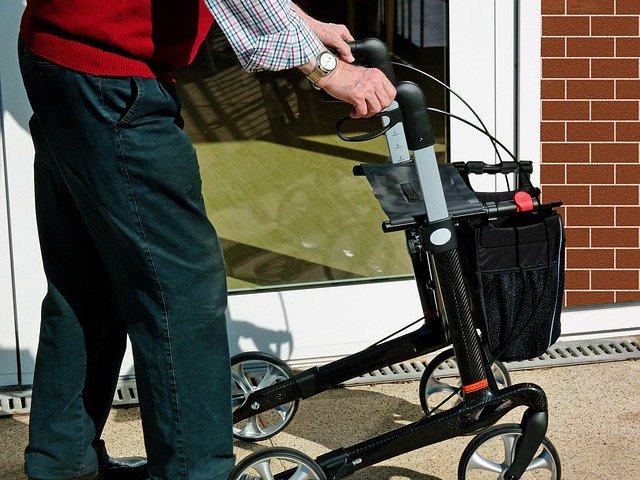Electric Wheelchairs: A Comprehensive Guide for Seniors and Caregivers
Electric wheelchairs have revolutionized mobility for seniors and individuals with physical limitations. These motorized devices offer independence, comfort, and ease of use, allowing users to navigate their surroundings with greater freedom. This article explores the world of electric wheelchairs, focusing on their benefits, features, and considerations for seniors and caregivers.

What are the key benefits of electric wheelchairs for seniors?
Electric wheelchairs provide numerous advantages for older adults with mobility challenges. First and foremost, they offer increased independence, allowing seniors to move around their homes and communities without relying on others for assistance. This autonomy can significantly improve quality of life and mental well-being.
Additionally, electric wheelchairs reduce physical strain on users and caregivers. Unlike manual wheelchairs, which require upper body strength to operate, electric models can be controlled with minimal effort, making them ideal for individuals with limited arm or hand strength. This feature is particularly beneficial for seniors with conditions such as arthritis or muscle weakness.
How do electric wheelchairs differ from manual wheelchairs?
The primary distinction between electric and manual wheelchairs lies in their propulsion method. Electric wheelchairs are powered by rechargeable batteries and controlled via a joystick or other electronic interface. This motorized system allows users to move effortlessly across various terrains and distances without physical exertion.
Manual wheelchairs, on the other hand, rely on the user’s strength or a caregiver’s assistance for movement. While manual chairs are typically lighter and more portable, they can be challenging for seniors with limited upper body strength or endurance to operate independently.
Electric wheelchairs also tend to offer more advanced features, such as adjustable seating positions, better suspension systems, and the ability to navigate tighter spaces. These features contribute to enhanced comfort and versatility, making electric models a preferred choice for many seniors.
What features should seniors look for in an electric wheelchair?
When selecting an electric wheelchair, seniors and caregivers should consider several key features:
-
Comfort: Look for models with adjustable seats, backrests, and armrests to ensure proper support and comfort during extended use.
-
Battery life: Choose a wheelchair with sufficient battery capacity to meet daily needs without frequent recharging.
-
Maneuverability: Opt for a chair with a tight turning radius and good stability for navigating indoor spaces and outdoor terrain.
-
Weight capacity: Ensure the wheelchair can safely support the user’s weight, including any additional items they may need to carry.
-
Portability: For seniors who travel or use transportation services, consider foldable electric wheelchairs that are easier to transport and store.
-
Controls: Select a model with user-friendly controls that accommodate any dexterity limitations the senior may have.
Are foldable electric wheelchairs a good option for seniors?
Foldable electric wheelchairs have gained popularity among seniors due to their versatility and convenience. These models offer the benefits of standard electric wheelchairs while addressing the need for portability. Foldable designs allow for easier storage in small living spaces and simpler transportation in vehicles.
For seniors who enjoy traveling or frequently visit family and friends, foldable electric wheelchairs can be invaluable. They typically weigh less than non-folding models and can be quickly collapsed for air travel or storage in car trunks. However, it’s important to note that foldable models may have slightly reduced battery life or weight capacity compared to their non-folding counterparts.
What safety considerations are important for senior electric wheelchair users?
Safety is paramount when using electric wheelchairs. Seniors and caregivers should be aware of the following considerations:
-
Proper training: Users should receive thorough instruction on operating the wheelchair, including its controls and safety features.
-
Regular maintenance: Schedule routine check-ups to ensure all components are functioning correctly and safely.
-
Environmental awareness: Be mindful of potential hazards such as uneven surfaces, stairs, or narrow doorways.
-
Weather considerations: Take precautions when using the wheelchair in wet or icy conditions to prevent accidents.
-
Battery management: Always keep the battery charged and be aware of the wheelchair’s range to avoid being stranded.
-
Visibility: Use reflectors or lights when operating the wheelchair in low-light conditions to ensure visibility to others.
How do electric wheelchairs impact Medicare coverage and financial considerations?
Electric wheelchairs can represent a significant investment for seniors and their families. Understanding the financial aspects and potential coverage options is crucial when considering a purchase.
Medicare Part B may cover electric wheelchairs if they are deemed medically necessary and prescribed by a doctor. However, specific criteria must be met, including the inability to perform mobility-related activities of daily living using other mobility aids.
| Provider | Coverage Type | Potential Out-of-Pocket Costs |
|---|---|---|
| Medicare Part B | 80% of approved amount | 20% coinsurance, plus deductible |
| Medicaid | Varies by state | Minimal to none in most cases |
| Private Insurance | Depends on policy | Varies widely by plan and provider |
| Veterans Affairs | Full coverage for eligible veterans | Minimal to none for qualified individuals |
Prices, rates, or cost estimates mentioned in this article are based on the latest available information but may change over time. Independent research is advised before making financial decisions.
In conclusion, electric wheelchairs offer seniors enhanced mobility, independence, and quality of life. By considering factors such as comfort, portability, safety, and financial implications, seniors and caregivers can make informed decisions when selecting the most suitable electric wheelchair to meet their needs. As technology continues to advance, these mobility aids will likely become even more sophisticated, further improving the lives of seniors with mobility challenges.




